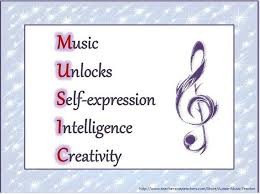Balance can be key to Caregiver Respite
This week, I am pleased to have Jess Dickie as my guest blogger. Jess is a Music Therapist and is truly a great balance for many families who have a child or relative with a disability.
When one’s communicative skills are comprised, music is always a fun modality for an engaging, meaning activity.
When a family needs to implement respite for their loved one, Jess provides an hour of fun, engagement and her clients love her! I’ve worked with many individuals, couples and families who have welcomed Jess and were so amazingly surprised to hear their child or relative singing and having fun!
This can be one of your self-care activities and also help you have work-life balance within your family!
What is Music Therapy? (By Jess Dickie, Music Therapist)
This is a question I often get asked and explain to others. Many people use music to help themselves; whether it’s motivation at the gym, to help them sleep at night, or to calm down and relax when upset or angry. While that may be helpful, it is not music therapy.
To quote the Canadian Association for Music Therapy – “Music therapy is the skillful use of music and musical elements by an accredited music therapist to promote, maintain, and restore mental, physical, emotional, and spiritual health. Music has nonverbal, creative, structural, and emotional qualities. These are used in the therapeutic relationship to facilitate contact, interaction, self-awareness, learning, self-expression, communication, and personal development.”
To put it simply, music therapy is the use of music to achieve non-musical goals in a safe atmosphere with an accredited music therapist.
Music therapists are able to use their clinical training to help with various goals a client may have in the domains of communication, academic/cognitive skills, motor skills, musical skills, emotional skills, and social skills.
Music is simply the medium for the therapy, as opposed to speech, art, or play as seen in other professions.
While people may use music for motivation or to help make them feel better, it is not the same as music therapy as it does not meet the above criteria.
Music therapy can be used with a wide range of people and is used widely across the globe, from Canada, the USA, England, Australia, and India to name a few countries. Music has a wonderful power of being able to connect people, as it is its own language that everyone can relate to.
Music therapy is supported by empirical evidence and studies to prove its effectiveness.
Please join me on Social Media!
Website: www.connectionsmusictherapy.com
Twitter: @funmusictherapy
Linked In: linkedin.com/in/connectionsmusictherapy
Photo Credit: https://www.teacherspayteachers.com
Leave a Reply
You must be logged in to post a comment.
